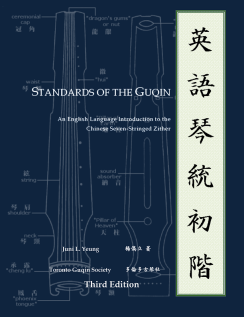On behalf of everyone at TorGuqin, I thank visitors from around the world for supporting our efforts in researching the Guqin (Chinese 7-string zither), Hanfu (Traditional Han Chinese clothing), and Chinese culture in general in the past year!
12 months and a half of TorGuqin, 12.8k hits!
31 Aug 2009 Leave a comment
Chinese Coming-of-Age Ceremony and Archery Ceremony, Sept. 24, 2009
30 Aug 2009 2 Comments
in Guqin, Hanfu, TorGuqin Notices Tags: 60th Chinese Anniversary, Book of Odes, Chinese, Chinese Ritual, Coming of age, Court music, Hanfu, Hanfu movement, Ryerson University, Shijing
 The Toronto Guqin Society (TQS) and University of Toronto Chinese Undergraduate Association(CUAUT) will be performing a traditional Chinese coming-of-age ceremony, followed by a Chinese Archery ceremony. This is a part of a larger series of cultural events organized by the Chinese Students and Scholars Association of Ontario United(CSSAUO), in commemoration of the 60th anniversary of the founding of the People’s Republic of China.
The Toronto Guqin Society (TQS) and University of Toronto Chinese Undergraduate Association(CUAUT) will be performing a traditional Chinese coming-of-age ceremony, followed by a Chinese Archery ceremony. This is a part of a larger series of cultural events organized by the Chinese Students and Scholars Association of Ontario United(CSSAUO), in commemoration of the 60th anniversary of the founding of the People’s Republic of China.
The ceremonies will take place on September 24, 2009, from 2-4PM, in the Quadrangle (open grass area) of Ryerson University (41 Gerrard St. E.). General admittance to the traditional ceremonies in the afternoon is free of charge. Tickets to the evening venue are priced at $10, and are purchasable from www.1ticket.ca.
TQS has painstakingly researched the details of the ritual and has successfully recovered and restored the previously thought lost music score from the Book of Odes, and will be integrating four sections with the ceremony, performed by members of TQS and the Toronto Chinese Symphony. Be sure to come witness this rare glimpse of traditional Chinese ritual and court music!
Traditionally, males at age 20 and females at age 15 undergo the coming-of-age, and the rituals are called Guan-li冠禮 and Ji-li笄禮respectively. Participants undergo three changes of traditional clothing and headwear to represent the process of maturity, legal empowerment, and burdening of social responsibility. Finally, the mentor figure gives every participant a unique zi 字, or courtesy name, to be used by others referring to the new adults as an honorific.
The She-li射禮, or Archery ritual, was used in pre-Confucian China as a method of leader selection. Confucian revisionism gave this ritual additional meaning of demonstrating proper ritual, manners, music, social order, and using a weapon for peace and education.
These rituals were lost in practice due to Manchurian imposing bans and censors on Han Chinese clothing and traditional culture during the Qing dynasty (1644-1911), as well as Imperialism and Westernization since the 1850’s. Since 2003, an Internet movement beginning in China called on everyone to rediscover the lost Han Chinese culture and promote its value to global multiculturalism, debunking past stereotypes and taking pride in the Chinese heritage.
This event is officially supported by CSSAUO, TQS, and the Consulate General of the People’s Republic of China in Toronto. The evening show is officially sponsored by CIBC, China Unionpay, and Scotiabank.
Related Downloads:
An introduction to Traditional Han Chinese Clothing
Ritual Itinerary
A detailed account of the Guan-li (Coming-of-age ceremony)
A detailed account of the She-li (Archery ceremony)
The Shijing CAN be sung! Playing and Singing pieces from the Book of Odes
20 Aug 2009 Leave a comment
in Guqin, Hanfu Tags: Book of Songs, Chinese literature, Chinese music, Guan Li, Shijing
*EDIT: Please see newer post*
One google search will usually tell you that the Book of Songs/Book of Odes/Classic of Poetry/Shijing/《詩經》 is one of the oldest classics of Chinese literature, with its 300+ songs in Classical Chinese (not to be confused with Wenyan 文言 or “literary speech” written form), and was traditionally sung but its music was lost throughout the ages, therefore people today just recite it.
What bull.
Just look at this document, the Qinding Shijing Yuepu 《欽定詩經樂譜》, commissioned by the Qianlong Emperor and reprinted by Wang Yunwu in the Republican period.The music is lost? What lies.
Due to the recent preparation of a Guanli in Toronto, I have become increasingly busy to the point where I haven’t even touched this blog in weeks (when I should be giving an outline of my England travels – looks like that’ll have to wait). However, this is too important to just slip by, and this book represents the very purpose of this site. This post includes translated sections of the music score for use in Guanli and Sheli.
Please click in. More






Recent Comments